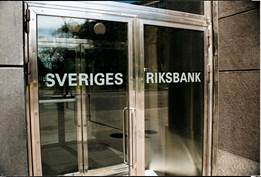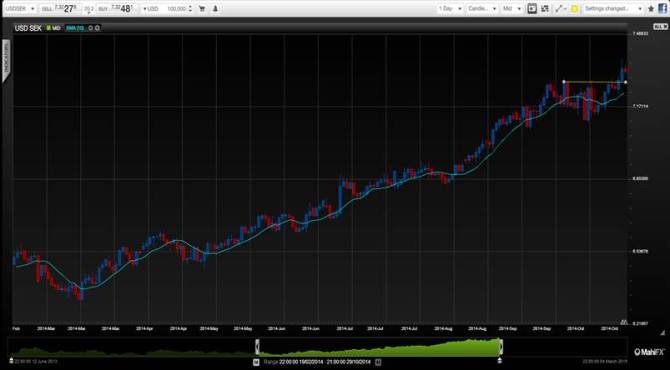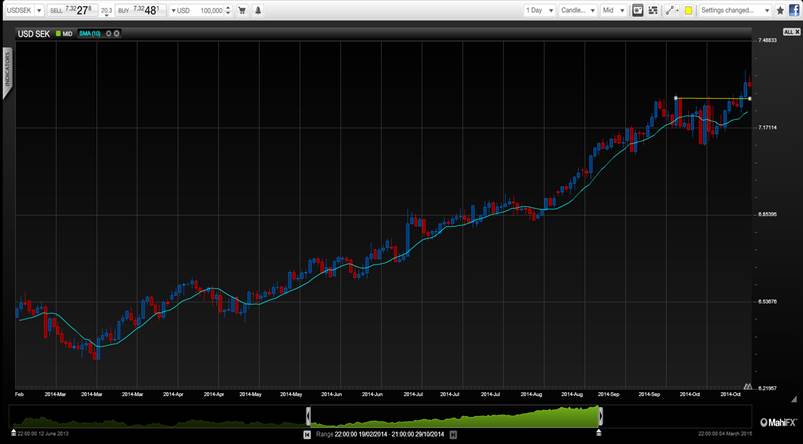The Riksbank cut Sweden’s interest rates to zero this week citing deflationary pressures and promptly sent SEK plunging. However, the move has implications for US Federal Reserve and Bank of England monetary policy and forex markets generally.
The bogeyman of the markets used to be the banks, then it was recession (still an issue to an extent) and now it is deflation. Deflation fears seem to be exerting greater influence on forex markets due to the growing preoccupation with falling prices by central bankers.
Interestingly, the Riksbank went further than markets expected with its rate cut, despite Sweden’s decent economic prospects. The economy is on course to grow 1.9% this year, compared with 1.7% last year and could notch up 2.7% in 2015.
By Justin Pugsley, Markets Analyst MahiFX. Follow @MahiFX on twitter

Image source: Riksbank
But the move was less about sustaining growth, though the stagnating Eurozone is a concern for the Riksbank. It was primarily about the prospect of deflation taking hold in Sweden. It’s a line of thinking, which is not only influencing policy at the Bank of Japan and the European Central Bank, but increasingly the Fed and the BoE.
The deflationary trade – SEK this week’s loser?

Profound implications for USD and GBP
Sweden’s move suggests that both the Fed and the BoE could delay interest rate rises indefinitely and may even return to more quantitative easing at some point – even with decent economic growth and job creation taking place. This would have profound implications for GBP and USD versus other currencies, potentially sending them lower.
Yet the US and UK economies have relatively good economic outlooks for 2015 with the US and its huge domestic economy being well placed to withstand slowdowns in China, Japan and the Eurozone. Both also have relatively strong financial systems. At the moment at least, there appears to be no imminent major crisis – just continued uncertainty, which seems to be the norm now.
However, the recent bout of deflation is actually positive for most western economies as it involves falling commodity prices therefore putting more money into consumers’ pockets. To a certain extent it should help offset very low wage rises in both economies.
The very real danger of keeping interest rates low indefinitely, or even resorting to QE again, is that it will simply fuel price bubbles elsewhere in the economy – namely financial assets. That does worry some policy makers at the Fed and BoE, but they appear to be a minority.
The fear behind deflation of course is that debt levels, in real terms, increase in size. In a no- growth environment that is a huge worry, but the US and UK are actually growing. Both countries are also seeing a huge economic transformation taking place with the growth in digital and disruptive technologies challenging traditional industries. This too could be having a deflationary impact.
The onus is very much on the ECB and the BoJ to fight deflation now as the Eurozone and Japan are clearly struggling to grow. The Fed and BoE should be more concerned about irrational exuberance and dangerous speculation taking hold – the very same activities, which caused the last financial crisis.
